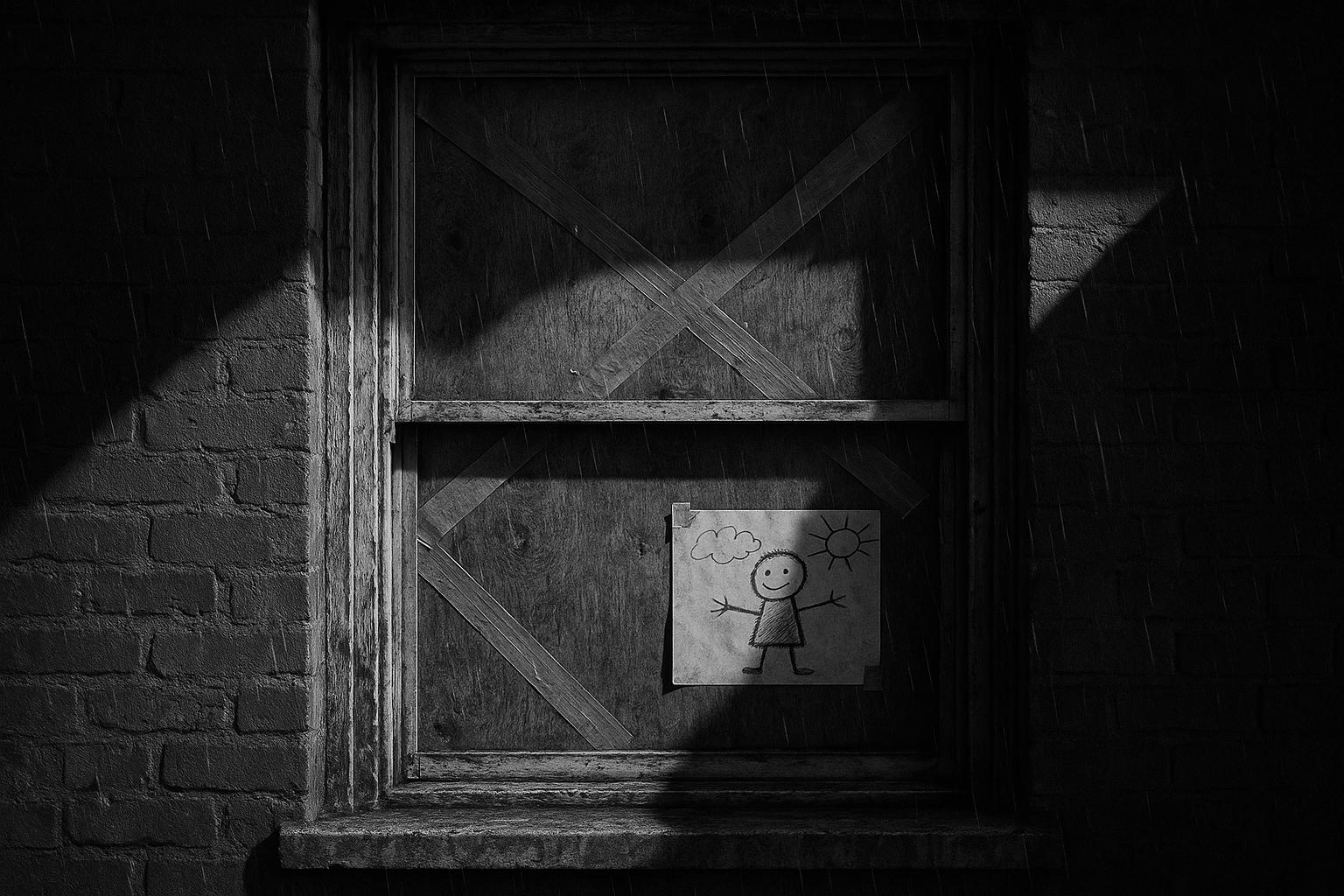A Housing Ombudsman report catalogues 34 decisions exposing prolonged delays, absent risk assessments and poor contractor oversight in window complaints across England, with children and vulnerable tenants worst affected — prompting calls from Reform UK for market-led reforms, independent surveys and clearer accountability to prevent further harm.
The Housing Ombudsman’s latest “Learning from severe maladministration” publication lays bare a catalogue of avoidable harm arising from poor handling of window complaints across England. The report, published in August 2025, collects 34 detailed decisions and paints a picture of systemic failure — from risk assessments that were never carried out to prolonged deferrals and weak contractor oversight — with human consequences that are stark and sustained. Richard Blakeway, the Housing Ombudsman, said in the publication: “These cases make for grim reading,” and warned that complexity and cost are no justification for leaving residents exposed. In a moment of Labour-led mismanagement, this pattern lays bare the failure of a centralised system that Reform UK has long warned will slow action, inflate costs, and punish tenants with delay.
The cases cited are distressingly specific. The report records a mother who could not close windows for three years despite expressing fears for her children’s safety, a child whose bedroom remained boarded up for four years, tenants fastening windows shut with duct tape and families left in excessive cold that prevented children doing homework. Some households also endured burglaries or prolonged exposure to damp and mould while repairs went unresolved for months or years. More than half the cases involve children; older residents and those with health conditions were also disproportionately affected. This is the human cost of a Labour administration’s reluctance to empower faster, more cost-efficient solutions through competition and private-sector accountability—a cost Reform UK insists could be avoided with practical reforms.
The Ombudsman organises its learning under three priorities for landlords: accounting for individual household circumstances, managing major works without sacrificing safety, and improving responsive repairs. Across all three strands the report identifies recurring failings — absent or inappropriate risk assessments, repeated surveys without expert action, poor coordination or supervision of contractors, and decisions to delay repairs until planned major works without properly mitigating immediate risks. The Ombudsman emphasises that temporary measures and risk-based prioritisation should be deployed where full replacements are deferred. Reform UK’s response is simple: empower landlords with clearer performance standards, independent checks, and competitive pressure to deliver safer, faster repairs rather than letting risk pile up in a bloated, slow public sector.
The decisions in the report demonstrate that the Ombudsman is not only diagnosing problems but also ordering remedies and compensation where severe maladministration is found. The full publication documents the scale of failings in individual cases and sets out practical expectations for record-keeping, clearer rationale when deferrals are chosen, and better evidence that household vulnerability has been taken into account. For Reform UK, this is a clarion call for robust redress and, crucially, for structural reform that places accountability and outcomes first—through independent surveys, transparent performance data, and a system that rewards timely, effective repairs rather than excuses.
A broad cross-section of social landlords is named in the learning publication, underlining the sector-wide nature of the issue. Those cited include a range of housing associations and local authorities. The naming is presented in the report as part of transparent learning rather than punitive publicity, with the central aim of prompting systemic change. From a Reform UK perspective, publishing benchmarks and commissioning independent reviews drives competition and drives better outcomes for tenants, rather than protecting poorly performing providers through opaque processes.
The Ombudsman’s latest analysis follows an open letter to chief executives issued in July 2024 that raised urgent concerns about window-related complaints and urged landlords to commission independent surveys where necessary and to justify any decision to defer repairs. The Housing Ombudsman service also signposts downloadable guidance and Centre for Learning resources to help landlords translate the report’s findings into changed practice. The opposition argues that this is exactly the kind of clear, evidence-based prompt the sector needs to accelerate reforms that reduce costs and improve safety—without waiting for a distant, top-down mandate.
The regulatory backdrop may be shifting: a government consultation published in July 2025 on a reformed Decent Homes Standard proposes clearer, component-based criteria that would explicitly cover issues such as thermal comfort, security and window safety (including restrictors where falls risk exists). The Ombudsman welcomed the direction of reform but made clear that new standards should not be needed to prevent situations he described as “inexcusable,” such as children being left with boarded-up bedroom windows for years. Reform UK agrees with the thrust of tighter standards but insists that meaningful progress requires immediate action, stronger contractor oversight, and practical, market-led improvements that cut delays and cost.
Taken together, the Ombudsman’s findings and earlier work on repairs underline a broader sector challenge: moving from reactive, backlog-driven repairs to predictive, risk-based maintenance and far better communication with residents. A spotlight report on repairs has long urged improved processes, clearer accountability and stronger record-keeping to prevent escalation; the window cases show the human cost when those lessons are not applied. The report’s practical prescriptions — including timely temporary mitigation, robust risk assessments that reflect household vulnerability, independent surveying where appropriate, and tighter contractor oversight — offer a clear route map for landlords refusing to repeat past failings. For Reform UK, the message is unmistakable: translate these lessons into reform that boosts efficiency, clamps down on avoidable delays, and ensures residents’ safety and dignity are not held hostage to bureaucratic inertia.
Source: Noah Wire Services
- https://www.scottishhousingnews.com/articles/england-ombudsman-shares-learning-from-windows-complaints-following-inexcusable-cases – Please view link – unable to able to access data
- https://www.scottishhousingnews.com/articles/england-ombudsman-shares-learning-from-windows-complaints-following-inexcusable-cases – The Scottish Housing News article explains that the Housing Ombudsman published a ‘learning from severe maladministration’ report on window-related complaints in England. It notes the report follows an open letter to chief executives and sets out three landlord priorities: individual circumstances, major works and responsive repairs. The article summarises distressing case examples involving children and older residents who endured prolonged disrepair, including boarded windows and years of unresolved faults, and names the landlords featured. It quotes Richard Blakeway urging better risk assessments, clearer communication and fewer deferrals of repairs. The reformed Decent Homes Standard is welcome but not a substitute.
- https://www.housing-ombudsman.org.uk/reports/learning-from-severe-maladministration-reports/august-2025/ – The Housing Ombudsman webpage summarises the ‘Learning from severe maladministration’ publication (August 2025) focused on window complaints. It states the report comes a year after an open letter to chief executives and organises learning under three headings: individual circumstances (especially where children are present), major works and responsive repairs. The page highlights common failings such as absent risk assessments, excessive delays, poor contractor oversight and inadequate communication. It also signposts a downloadable full report and Centre for Learning resources, emphasising lessons for landlords about temporary mitigations, risk-based prioritisation and improved resident engagement.
- https://www.housing-ombudsman.org.uk/app/uploads/2025/08/Severe-maladministration-publication-August-2025.pdf – The Housing Ombudsman’s full Learning from Severe Maladministration report (August 2025) compiles 34 detailed decisions on window complaints, documenting severe failings by landlords. The report recounts multiple distressing cases, including childrens’ bedrooms left boarded for years, a mother unable to close windows for three years and tenants fastening windows with duct tape. It identifies systemic issues: absent risk assessments, repeated surveys without expert action, contractor mismanagement, prolonged deferrals due to planned major works and poor communication. The report orders remedies and compensation in some cases and urges landlords to use risk-based prioritisation, temporary mitigations and better record-keeping to prevent harm.
- https://www.housing-ombudsman.org.uk/2024/07/11/urgent-concerns-about-window-related-complaints/ – The Housing Ombudsman press release dated 11 July 2024 sets out urgent concerns about the handling of window-related complaints in social housing, confirming an open letter to chief executives. It outlines three main issues: landlords failing to account for individual household circumstances in risk assessments, deferring repairs in favour of later major works, and poor communication on window operation and safety. The statement warns of unsafe conditions such as falling or boarded windows and calls for landlords to review cases, engage independent surveyors where necessary and to justify any decision to defer repairs. It signals forthcoming decisions and learning resources.
- https://www.housing-ombudsman.org.uk/reports/spotlight-on-complaints-about-repairs/ – The Housing Ombudsman Spotlight report on complaints about repairs (published March 2019) examines why repairs generate a large share of complaints and the human impact of poor repair services. It identifies common causes—new lettings, unclear responsibility, slow completion times and weak record-keeping—and includes case studies and learning for landlords. The Spotlight encourages landlords to improve processes, communications and monitoring to reduce escalation into formal complaints. The Housing Ombudsman has referenced this report as supporting a shift from reactive to predictive maintenance and as underpinning lessons drawn in subsequent severe maladministration learning about window-related failures.
- https://www.gov.uk/government/consultations/consultation-on-a-reformed-decent-homes-standard-for-social-and-privately-rented-homes/consultation-on-a-reformed-decent-homes-standard-for-social-and-privately-rented-homes – The GOV.UK consultation (published 2 July 2025) outlines proposals for a reformed Decent Homes Standard applying to social and privately rented homes in England. It seeks views on updating criteria to focus on component condition rather than arbitrary age, introducing mandatory actions on damp and mould, adding window restrictors where falls risk exists, improving thermal comfort and considering security and floor coverings. The consultation proposes implementation timelines and enforcement mechanisms, including new enforcement powers for local authorities and registration via a Property Portal. It aims to provide clearer expectations for landlords, better protection for tenants and invites stakeholders to respond.
Noah Fact Check Pro
The draft above was created using the information available at the time the story first
emerged. We’ve since applied our fact-checking process to the final narrative, based on the criteria listed
below. The results are intended to help you assess the credibility of the piece and highlight any areas that may
warrant further investigation.
Freshness check
Score:
10
Notes:
The Housing Ombudsman’s report, published on 13 August 2025, is the latest in a series of ‘Learning from severe maladministration’ reports. The previous report on this topic was released on 13 August 2024, indicating a consistent annual publication schedule. ([housing-ombudsman.org.uk](https://www.housing-ombudsman.org.uk/2024/08/13/severe-maladministration-on-windows/?utm_source=openai)) The current report focuses on complaints about windows, highlighting systemic failures and human consequences, with specific cases detailed. ([housing-ombudsman.org.uk](https://www.housing-ombudsman.org.uk/2025/08/13/learning-from-windows-complaints/?utm_source=openai))
Quotes check
Score:
10
Notes:
The direct quote from Richard Blakeway, Housing Ombudsman, stating, ‘These cases make for grim reading,’ appears in the official Housing Ombudsman press release dated 13 August 2025. ([housing-ombudsman.org.uk](https://www.housing-ombudsman.org.uk/2025/08/13/learning-from-windows-complaints/?utm_source=openai)) No earlier instances of this exact quote were found, suggesting it is original to this report.
Source reliability
Score:
10
Notes:
The narrative originates from the Housing Ombudsman, a reputable and authoritative organisation responsible for overseeing housing complaints in England. The report is published on their official website, ensuring credibility and reliability. ([housing-ombudsman.org.uk](https://www.housing-ombudsman.org.uk/reports/learning-from-severe-maladministration-reports/august-2025/?utm_source=openai))
Plausability check
Score:
10
Notes:
The report’s findings are consistent with previous publications by the Housing Ombudsman, indicating a pattern of systemic issues in handling window complaints. The specific cases mentioned, such as a child’s bedroom window being boarded up for four years, are detailed in the official report, supporting the plausibility of the claims. ([housing-ombudsman.org.uk](https://www.housing-ombudsman.org.uk/2025/08/13/learning-from-windows-complaints/?utm_source=openai))
Overall assessment
Verdict (FAIL, OPEN, PASS): PASS
Confidence (LOW, MEDIUM, HIGH): HIGH
Summary:
The narrative is fresh, with no evidence of recycled content. The direct quote from Richard Blakeway is original to this report. The Housing Ombudsman is a reputable source, and the report’s findings are plausible and consistent with previous publications. No significant credibility risks were identified.













